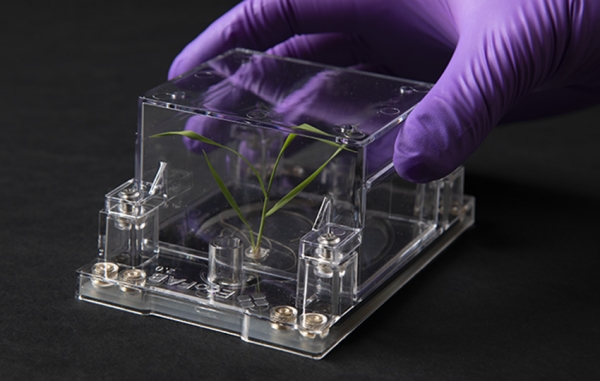A greater understanding of how plants and microbes work together to store vast amounts of atmospheric carbon in the soil will help in the design of better bioenergy crops for the fight against climate change.
A greater understanding of how plants and microbes work together to store vast amounts of atmospheric carbon in the soil will help in the design of better bioenergy crops for the fight against climate change.
Deciphering the mechanics of this mutually beneficial relationship is challenging, however, as conditions in nature are extremely difficult for scientists to replicate in the laboratory. To address this challenge, researchers at Lawrence Berkeley National Laboratory (Berkeley Lab) created fabricated ecosystems or EcoFABs.
In a new paper in Science Advances, they show how these takeout box–sized, plastic growth chambers could potentially provide scientists around the world with a standardized and reproducible platform for conducting experiments on model plants and the microbes that live around their roots.
This could in turn expedite research into the development of improved bioenergy crops capable of growing in nutrient-poor soils and absorbing more carbon from the atmosphere than is currently possible.
Read more at: Berkeley Labs
A fabricated ecosystem, or EcoFAB. (Photo Credit: Thor Swift/Berkeley Lab)




